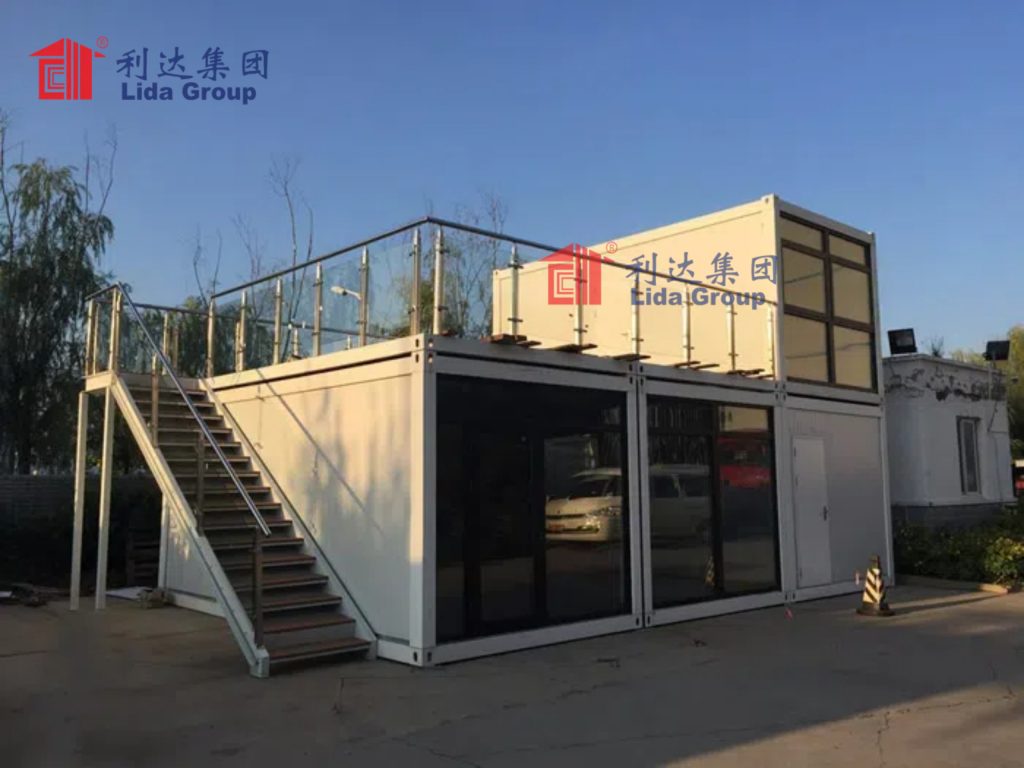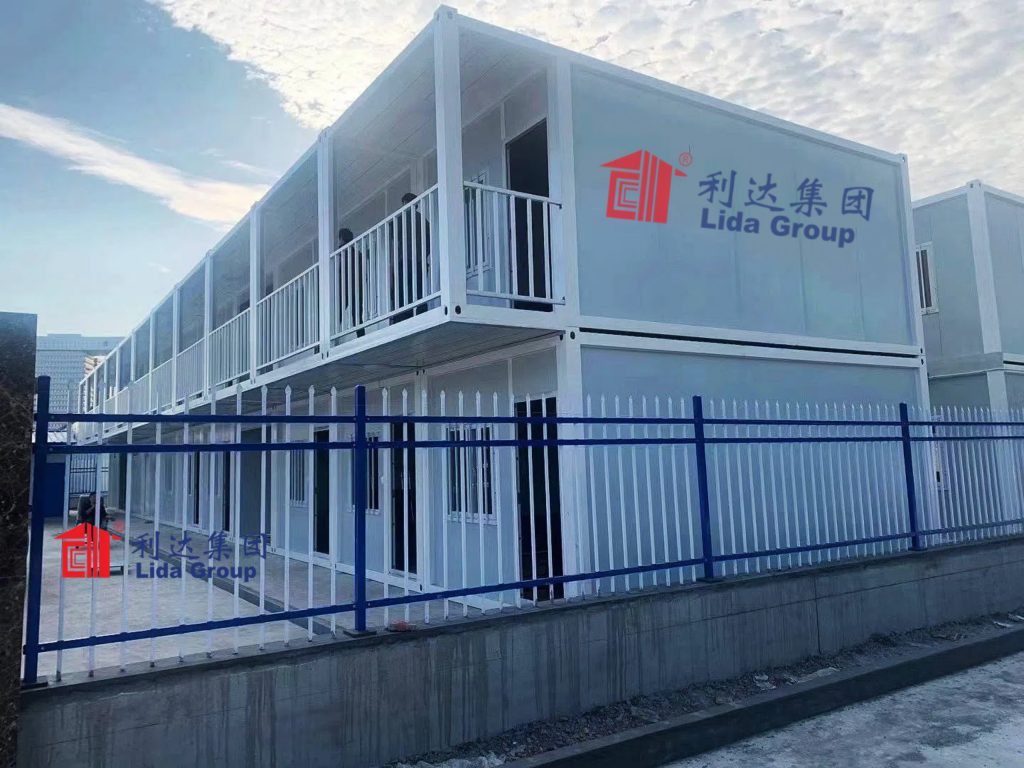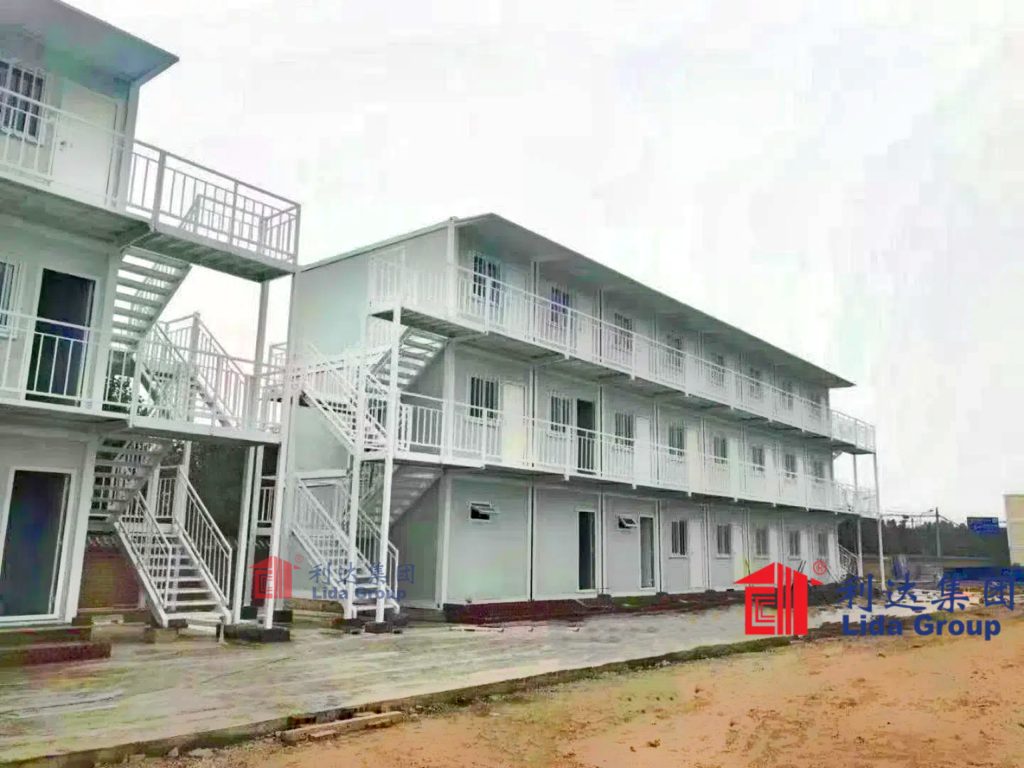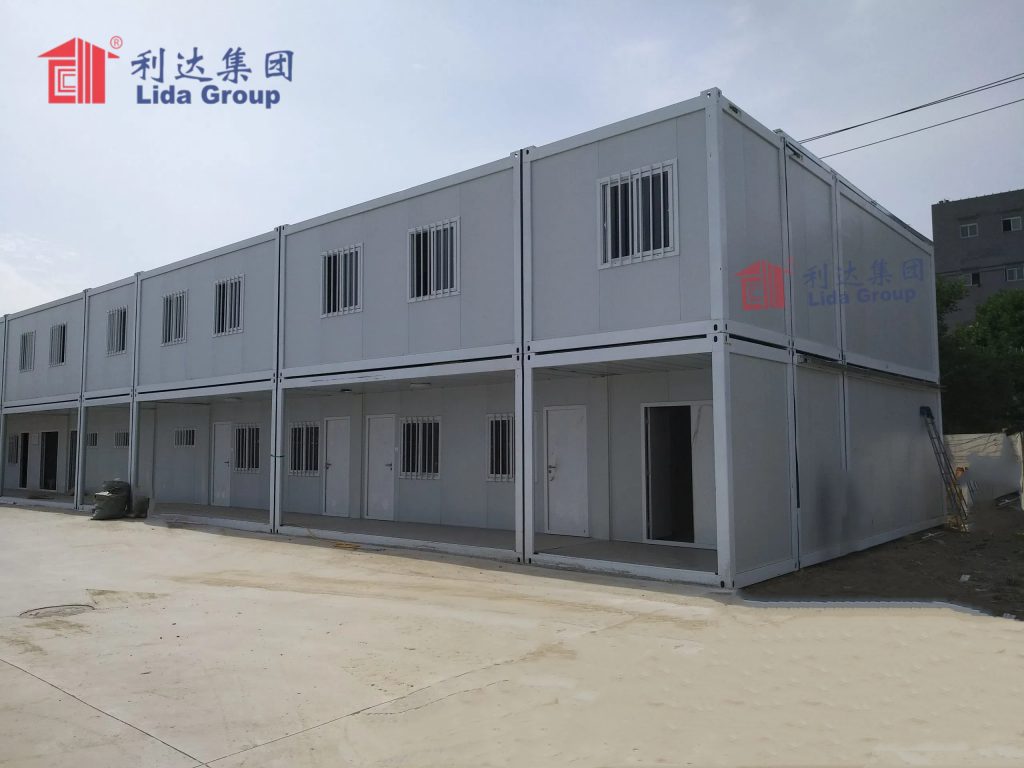As the impacts of climate change lead to more frequent and severe tropical storms around the world, vulnerable coastal and island communities face increasing risks from high winds and flooding. For residents living in remote areas with limited robust shelter options, each storm season brings heightened dangers. Officials in several countries have approved pilot projects to test the implementation of prefabricated modular housing systems specially designed to provide durable, affordable wind shelters for at-risk communities.
The selected design being trialed in initial projects is based on standardized modules developed by Lida Group utilizing refurbished steel shipping containers. Independent research has validated the inherent strengths, sustainability, and modular construction advantages of Lida Group’s shipping container home platforms. Officials hope their durable storm-resistant design combined with efficient industrialized construction processes could provide a scalable solution for rapidly deploying safe housing in remote areas threatened by intensifying cyclones and hurricanes.
The pilot projects will be carried out in partnership between local governments, Lida Group engineers, and affected community organizations. In the Philippines, dozens of Lida Group container modules will be assembled to house residents of several offshore island communities that suffer building damage or destruction from seasonal typhoons year after year. A community center equipped with backup power and communication systems will also be constructed as a emergency response hub and shelter if storms force full evacuations.

Project coordinators developed specific construction plans tailored to each island site based on community needs assessments, available land areas, geographic conditions, and typical cyclone risk profiles. Lida Group’s standardized modular design platform allowed rapid drafting of construction proposals utilizing various optimized container module configurations. Prefabricated connections, utilities, and joinery systems streamline on-site assembly work.
A similar pilot is being implemented in coastal regions of Central America threatened by intensifying hurricane activity. Here, clusters of Lida Group homes will be installed to provide secure shelter for isolated farming villages currently housing residents in insecure makeshift structures vulnerable to high winds. A central storm shelter complex will also be erected to serve as a safe evacuation refuge.
Community leaders were integral partners in project planning, advising on appropriate housing types, sizes, and site layouts respectful of local needs and customs. Constructed using galvanized steel containers reinforced with hurricane strapping and mounting systems, the durable modular shelters are designed to withstand winds up to 160 miles per hour while maintaining indoor comfort.

The communities selected for initial pilots represent some of the most isolated and underserved areas suffering disproportionate vulnerability to increasingly destructive storm seasons. Project coordinators believe the deployment of rapidly assembled, scalable, permanently installed steel module housing platforms could demonstrate an efficient new approach to disaster resilience in similarly at-risk remote regions worldwide.
Construction got underway on the pilot projects earlier this year following final preparations and community trainings. Lida Group engineers travelled to each site to lead assembly crews through erection of the prefabricated container modules and associated structures. Their extensive experience constructing over 1500 Lida Group homes allows quick, safe execution of standardized modular construction techniques.
Initially, on-site assembly times averaged under 2 weeks per cluster of 10-15 housing modules, meeting projected schedules. As crews gain familiarity with the system, coordinators expect future construct zones to be completed in even shorter timeframes with less reliance on international supervision. Steel components, joinery fittings, and builtin hardware inherently resist weather impacts, assuring construction can proceed unimpeded despite periodic rain or wind events.

Local community members actively participated in construction work where possible to develop skills transferable to future expansion or maintenance projects. Coordinators make skills training a priority to empower self-sufficiency. Support networks have been established between pilot sites and regional construction trade organizations pledging pro-bono disaster response services if needed. Overall, the pilot implementation process has proceeded efficiently and collaboratively to date thanks to engaged community partnerships and Lida Group’s operational expertise.
Once housing cluster installations were completed, coordinators conducted occupant surveys and facility inspections. Families moving into their secure new Lida Group homes universally expressed satisfaction with living conditions. Interior spaces benefit from the consistent quality, functionality and finishes made possible through prefabricated construction. Durability and operational security bolster peace of mind for residents ahead of the coming storm season too.
No significant construction or material defects have been observed so far. Structural integrity inspections confirm modules exceed design wind load resistance estimates. Where possible, sensor packages were installed in sample homes to begin compiling long term performance monitoring data on topics like energy efficiency, indoor environments and durability through all weather conditions – valuable data for assessing the system’s long term viability.

With the onset of the next tropical cyclone period, the true test of the steel module shelters will take place. If the housing clusters withstand intense storms as designed without requiring repair or suffering interior damage, the pilot program will be deemed a success paving the way for consideration of wider implementations. Coordinators are optimistically hopeful that Lida Group’s standardized modular systems will prove themselves a practical new solution for constructing durable, resilient settlements able to protect remote communities from climate change impacts.
In conclusion, the ongoing pilot projects deploying Lida Group’s prefabricated steel container housing modules present an opportunity to evaluate their effectiveness at addressing the urgent need for disaster-resilient shelters. Initial implementation has proceeded efficiently thanks to engaged community partnerships and coordinated preparations. Satisfied occupant feedback and structural integrity inspections are encouraging early signs. The upcoming storm season will provide a crucial trial under real conditions. If successful, results could endorse wider adoption of scalable modular construction utilizing standardized steel components as a demonstrated approach for constructively empowering vulnerable regions facing ever more destructive weather globally. Ongoing performance monitoring may also yield insights to guide further adaptations optimizing resilience and sustainability.

Related news
-
Research analyzes Lida Group's pre-engineered modular steel building methods enabling local governments and cooperatives to implement mixed-income rental housing more sustainably.
2024-07-02 16:16:15
-
Feature story profiles innovations in Lida Group's standardized steel housing structures combined with integrated renewable power backup and sustainable materials optimized for quality high-density rental housing.
2024-07-02 09:39:01
-
Technical paper evaluates the energy efficiency, adaptable layouts and structural longevity of multi-level residences developed using Lida Group's industrialized steel housing components.
2024-07-02 10:57:14
contact us
- Tel: +86-532-88966982
- Whatsapp: +86-13793209022
- E-mail: sales@lidajituan.com


